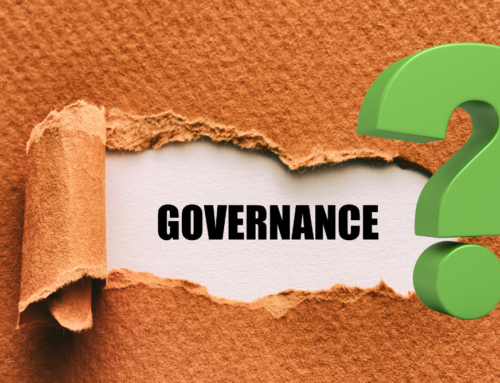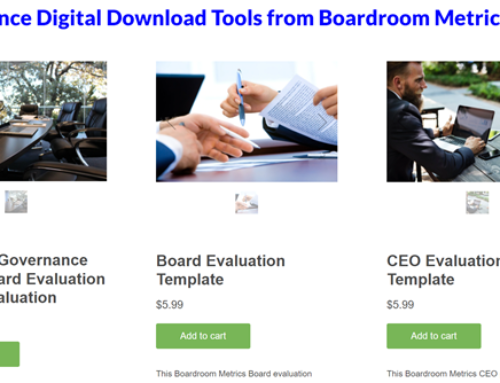
Boards should respond to The Great Resignation. It is exactly the type of risk that the Board’s governance role is designed to address.
What is The Great Resignation?
The Great Resignation is a term coined by economists and the press to capture the fact that lots of people are currently quitting their jobs. This is a mostly predictable response to Covid and its impact on workers (and the workplace) over the past two years. Some workers are going to ‘better jobs’ – frequently defined by higher pay and more flexibility. Others are simply leaving jobs they don’t like – frequently defined by high stress, poor leadership and low pay.
Whatever the driver, the loss of many employees and the difficulty and cost of attracting new ones is a key challenge affecting many organizations. Hospitality and food service organizations have seen the greatest impact, but the trend is widespread. Coming out of the pandemic, workers everywhere (it’s a world-wide phenomenon) are taking a hard look at whether their jobs are worth it or not. Many are concluding they aren’t, which has resulted in closures, slowdowns, pay increases and concern – particularly given the uneven recovery and other challenges (like supply chain) that many industries are dealing with.
What is the role of the Board in responding to The Great Resignation?
At Boardroom Metrics we are a broken record when it comes to the role of the Board (in general), and we sincerely wish more organizations would get their acts together on this. From our perspective, failure to execute this oversight role is the leading cause of governance failure. Dealing with The Great Resignation is a perfect example of something that Boards should have governance oversight on. Here’s how:
-
What is the risk to the organization?
The first role of any governance Board is to identify risks to the organization. Risks come in four flavors: financial, like fraud; legal, like filing false tax returns; external, like a new competitor, Covid or a messed-up supply chain; and, internal, like flawed manufacturing processes or poor HR policies. It’s the Board’s role to understand the key risks in these four areas that could jeopardize the organization’s future.
Obviously, The Great Resignation represents risk to the organization (we would put it in the internal risk category but it could also be external). Boards need to assess this risk and they should look to Management and others to provide them with information on what’s happening and the impact. If the organization is losing lots of workers; if it’s losing lots of talented workers; if it’s having trouble attracting new workers, then the Board needs to recognize these risks and prioritize their importance. Note that long before Covid, many Boards were paying attention to the state of their human capital (correctly so). However, the potential of human capital becoming a priority risk seems greater now than in the past. Boards should proactively (or in worst-case, reactively) recognize that.
-
What strategies mitigate the risk?
The second role of the Board is strategy. Every organization needs a strategic plan that does two things: 1) defines how the priority risks that have been identified will be mitigated, and 2) ensures the organization keeps on achieving its mission better.
Therefore, if employee retention and hiring is identified as a key risk, then the Board must also ensure that there are strategies in place to mitigate these risks (and ensure its ability to achieve the mission is sustainable). Increased pay and workplace flexibility are two key strategies many organizations are wrestling with. There are many others. Having worked with organizations for a couple of decades now, we would suggest that if more organizations would simply start treating their employees with increased respect and trust (a leadership issue), fewer employees would be heading out the door.
Also, keep in mind that money isn’t a motivator for most people (they would rather get recognition) – but it’s a big demotivator: if workers don’t have enough to live on; or if they don’t perceive they are being compensated fairly; or, they find out their co-worker is making 25% more than they are, then workers will leave (see Maslow’s Hierarchy of Needs).
Compensation and HR practices are critical strategic levers that organizations use to ensure their organizations are properly staffed and motivated to achieve their mission. Boards needs to understand these strategies and the risks associated with them (ie, are current strategies creating high turnover and number of ‘quits’?).
-
How well are the strategies working?
The third and final role of the Board is to ensure the strategies its agreed to are being implemented – and that they are achieving the desired results. In essence, the Board’s role is to hold the organization accountable for doing what was agreed in the strategic plan to offset The Great Resignation.
Generally, Boards are terrible at this (overseeing implementation of strategy). Strategies go into binders. Binders go on shelves…and, management focuses on whatever it is they know the Board actually cares about – which is most often results at any cost (which is how uneven pay and ruthless bosses are created in the first place).
The Boards role is to mitigate risk its identified by overseeing execution of the strategies.
If The Great Resignation is identified as a priority risk in your organization, then the Board has a responsibility to ensure it stays high profile at Board meetings and in discussions with the CEO and management team. Unfortunately, most Boards aren’t good at this. When strategic plans sit on shelves, then Boards lose sight of their importance (many Boards see the strategic plan as a to-do item, not fundamental to what the organization actually works on). Our recommendation for fixing that is simple (too simple here, but you get the point): review of risks and oversight of the strategic plan should be agenda items at every Board meeting.
Summary: How Board should respond to The Great Resignation
The Great Resignation is real. It’s a natural, almost predictable outcome of the Covid pandemic, working from home, rules and other stresses. Ideally, Organizations and Boards would have foreseen this risk and implemented strategies to mitigate it. The Board’s role now is to do just that. Boards must understand the impact on human capital that’s occurring and determine how significant the risk is to the organization. If the risk is significant, the Board should prioritize it and ensure strategies are developed that mitigate the impact. Then, it is up to the Board to oversee how well the strategies are implemented and whether they are working. Some Boards are up to this task. For many it’s a challenge. It’s not what they do. The simplest strategy we can suggest for Boards interested in fulfilling this oversight role is to make The Great Resignation an agenda item at every Board meeting.







Leave A Comment